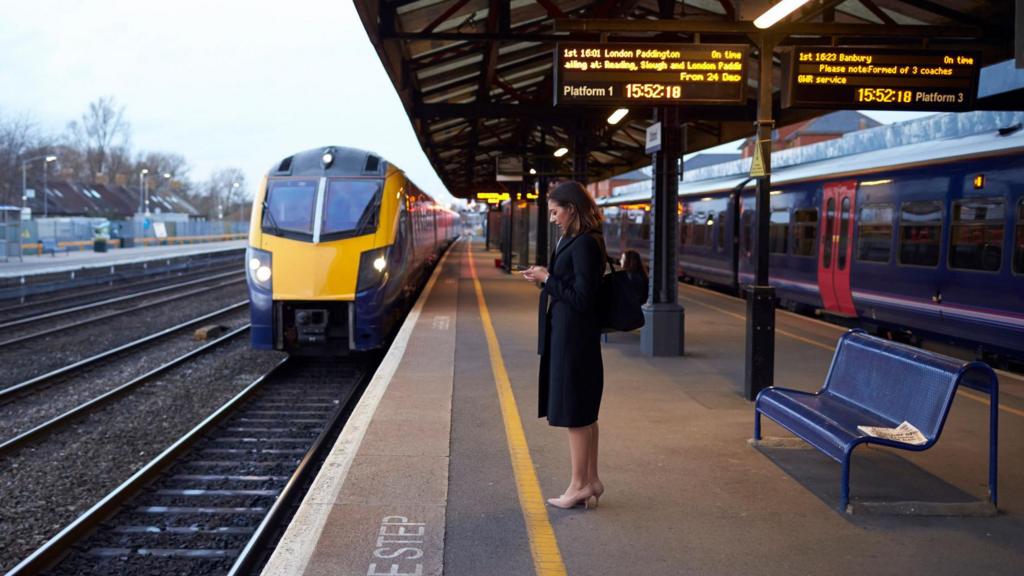The £6.6 billion Oxford-Cambridge railway project’s classification as an “England and Wales” initiative has sparked significant controversy.
Despite the line’s complete absence from Wales, this classification prevents the country from receiving any supplementary funding.
David Chadwick, Liberal Democrat MP for Brecon, Radnor, and Cwm Tawe, described the situation to Radio Wales Breakfast as a repeat of the HS2 debacle, echoing sentiments expressed by former Welsh Labour transport minister Lee Waters, who urged Westminster to rectify the system.
The UK government maintains that the project is funded through its “rail network enhancements pipeline,” which it claims also supports Welsh projects.
Conversely, the Welsh government’s transport secretary confirmed an agreed pipeline of work with the UK government.
Chadwick argued that Wales is being denied potentially transformative funding for its rail network, amounting to hundreds of millions of pounds. He criticized Labour’s expectation that Wales would believe this project benefits them while simultaneously justifying a lack of dedicated Welsh funding for transport improvements.
Unlike Scotland and Northern Ireland, most of Wales’ railway infrastructure is funded by the UK government, not Cardiff ministers.
The Barnett Formula, used to fund devolved nations, allocates additional funding to Scotland and Northern Ireland when rail spending increases in England and Wales. This contrasts with the HS2 situation, classified as an “England and Wales” project, thus preventing Wales from receiving additional funding, despite the line not extending into Wales.
Estimates of Wales’ purported HS2 shortfall vary widely, ranging from £4 billion (Plaid Cymru and the Welsh government) to £350 million (recent Welsh ministerial figures).
On BlueSky, former Welsh Labour transport minister Lee Waters highlighted Rail Minister Lord Hendy’s past criticism of HS2’s classification, predating his government appointment.
In 2023, Hendy noted the anomaly of Scotland and Northern Ireland receiving additional funds from HS2 spending while Wales did not. Waters criticized the funding formula’s lack of common sense.
He expressed cautious optimism regarding increased rail funding from the upcoming spending review, but emphasized the need for systemic reform to prevent future occurrences. He noted the inconsistency of recognizing the problem in opposition and failing to address it in government.
The TSSA rail union also called for a reevaluation, with general secretary Maryam Eslamdoust stating that while supporting rail investment, the project’s “England and Wales” classification undermines trust and risks depriving Welsh communities of essential funding.
Plaid Cymru’s Westminster leader, Liz Saville Roberts, deemed the classification “absurd,” highlighting the lack of benefit to Wales and the resulting loss of crucial infrastructure investment. She accused Labour of abandoning principles and neglecting Welsh communities’ needs.
The UK government cited its rail network enhancements pipeline as funding the redevelopment of Cardiff Central Station, improved level crossings, and upgrades to the south Wales relief lines.
Welsh government Transport Secretary Ken Skates acknowledged the historical disadvantage faced by Wales in rail funding and previous governments’ failure to address it. He noted the UK government’s admission of past underfunding of the Wales and Borders network and highlighted an agreed pipeline of improvements to compensate for this.
The Welsh government clarified that the minister’s statement referenced schemes previously praised by UK counterpart Heidi Alexander, including five new stations and north Wales mainline investments.
Railway funding has become a key issue for those advocating for greater Welsh control and fairer funding. This stems partly from the historically underfunded state of Welsh railways (acknowledged by the UK government) and Welsh Labour’s past criticisms regarding the integrated funding model with England, alongside Westminster’s apparent reluctance to reform the system.
While Transport Secretary Ken Skates expressed confidence in Wales benefiting from the upcoming spending review, the controversy will likely persist unless the long-standing funding policy, dating back to 1999, is revised.
Avanti West Coast services through Lockerbie and Carstairs were affected by a fallen tree.
Issues raised by frustrated rail users also include a lack of replacement buses.
The 24-hour walk-outs will take place during Summer Sessions at Bellahouston Park on 21, 25, 27 and 28 June.
Yorkshire businesses and chambers of commerce urge the government to back the proposals.
Trains between Redhill and Tonbridge will pause for nine days in August to stabilise an embankment.

